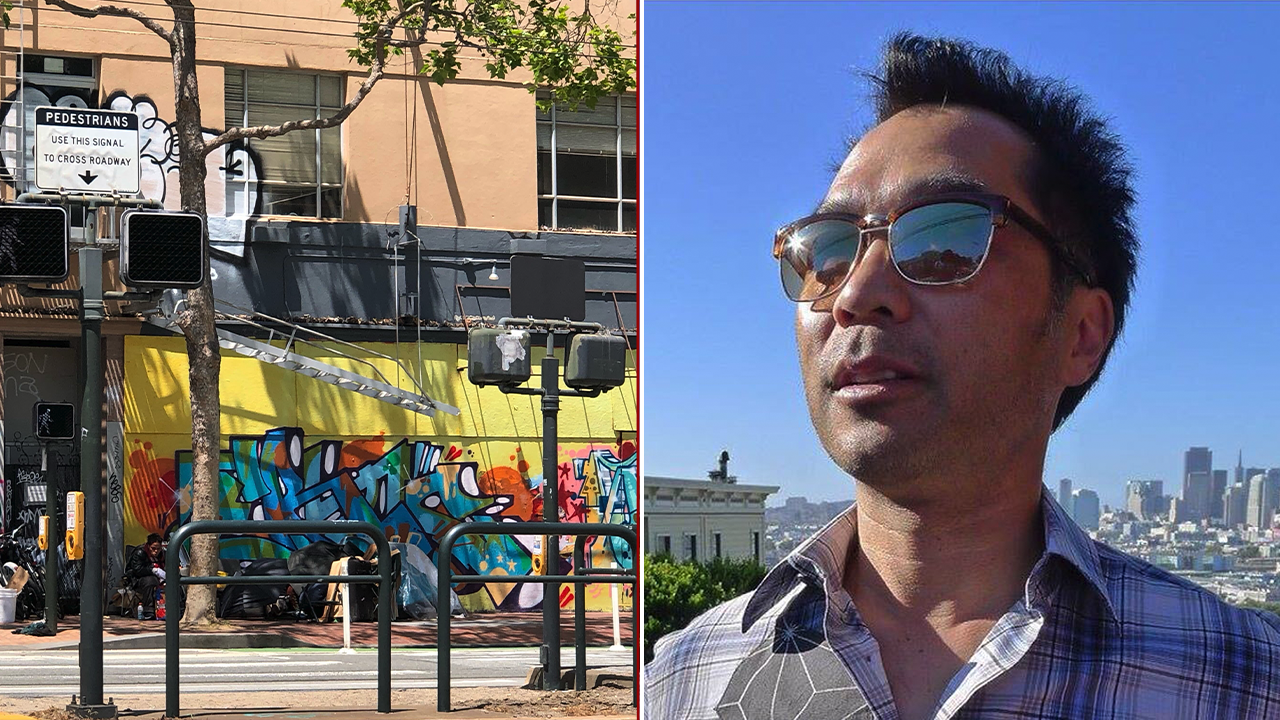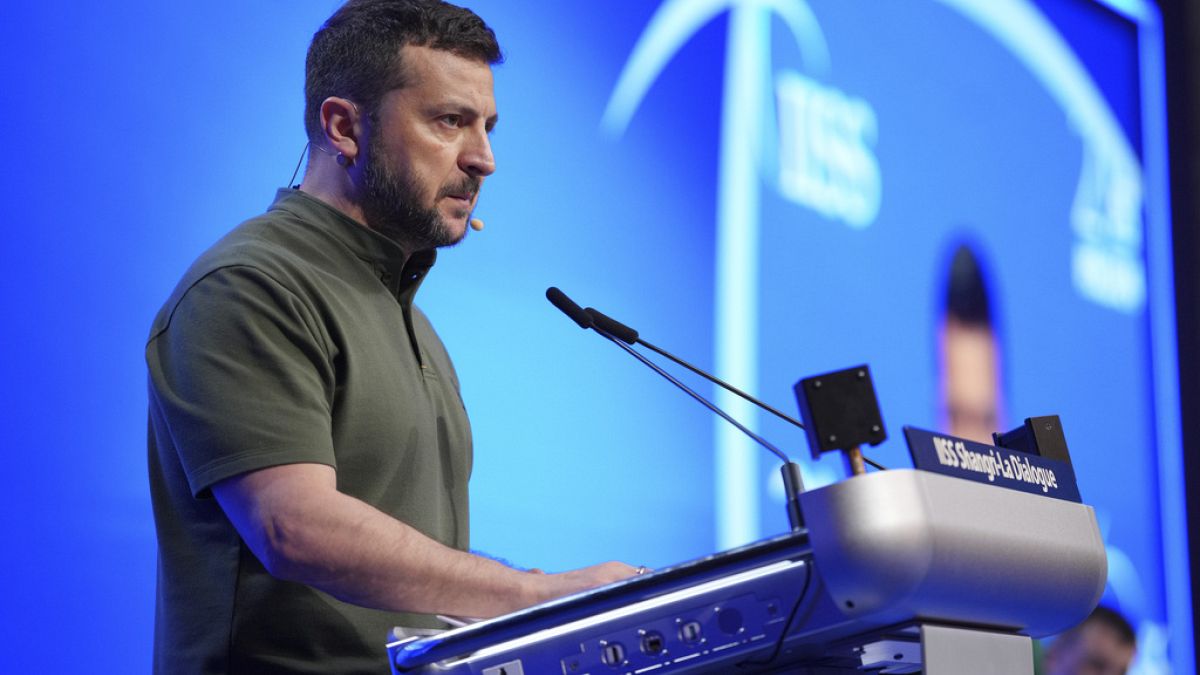Politics
Feds collected DNA from 1.5 million migrants in under four years, report finds

Routine collection of immigrants’ DNA by federal authorities has ballooned since 2020, with a 50-fold spike in the number of samples held in a national database of the sensitive genetic information, according to a report released Tuesday.
In nearly four years, the DNA database — which is shared with law enforcement agencies nationwide — added more than 1.5 million noncitizen profiles, according to the Georgetown Law Center on Privacy & Technology. That compares with about 30,000 total samples obtained since 2005, when Congress authorized DNA collection by federal immigration authorities, the study found.
The center said the sharp rise raises questions about whether immigrants’ privacy rights are being violated as well as the overall constitutionality of the program.
DNA samples are routinely taken by immigration agents “without any of the procedural rules that police are supposed to follow before they can take a person’s DNA,” the center said in the report.
The Department of Homeland Security didn’t immediately respond to a request for comment.
The increase is attributed to a 2020 Department of Justice rule change instituted by the Trump administration that requires the Department of Homeland Security to collect DNA from nearly all people detained by agents at the border and inside the country.
After agents collect DNA, the samples are sent to the FBI for testing and inclusion in a federal database called the Combined DNA Index System. Those profiles are labeled “offender,” and become indefinitely searchable by law enforcement nationwide, according to the report. The database, which was introduced in 1998, has 22 million total DNA profiles.
In collecting the DNA, immigration agents don’t need probable cause or judicial warrants that apply in the criminal justice context, the report states, though police use the data for criminal investigations. Georgetown researchers analyzed the legality of the program and argue it is unconstitutional because it violates the 4th Amendment.
If Homeland Security agents continue collecting DNA at the rate the agency projects, one-third of the profiles in the federal database used for criminal investigations will be from migrants and immigrants, researchers projected. That’s based on the Department of Justice’s prediction that immigration agents would submit 748,000 samples per year.
“The federal government is amassing a huge trove of DNA, starting with a racialized, often traumatized, and politically powerless group: noncitizens,” the report states. “And it is using the federal agency that operates with the fewest practical constraints and least oversight — the Department of Homeland Security (DHS) — to do it.”
In its 2024 fiscal year budget request, the FBI sought to nearly double its budget of $57 million for processing DNA samples, citing the need to process samples collected by Homeland Security agents.
As part of a House appropriations hearing in April 2023, FBI Director Christopher Wray submitted a statement acknowledging the agency faced a backlog of 650,000 samples and that the addition of noncitizens’ DNA had “created massive budget and personnel shortfalls.”
Researchers interviewed several people who said they were unaware their DNA had been collected, though internal policies stipulate that agents must inform people beforehand. Others said they submitted to a cheek swab under threat of criminal prosecution if they didn’t comply.
In response to a June 2022 email from the Georgetown center researcher, Valentina Seeley, an Immigration and Customs Enforcement official, said those who don’t comply with DNA sampling are warned of consequences “and subsequently referred for criminal prosecution” if noncompliance persists.
Stevie Glaberson, one of the report authors, said that regardless of whether immigration agents adequately inform people in their custody, the process is coercive.
“Even when people know what’s happening, they’re terrified to ask questions, they’re terrified to object, they’re terrified to refuse,” she said.

Politics
Trump verdict has started 'war of weaponization of the criminal justice system,' legal experts warn
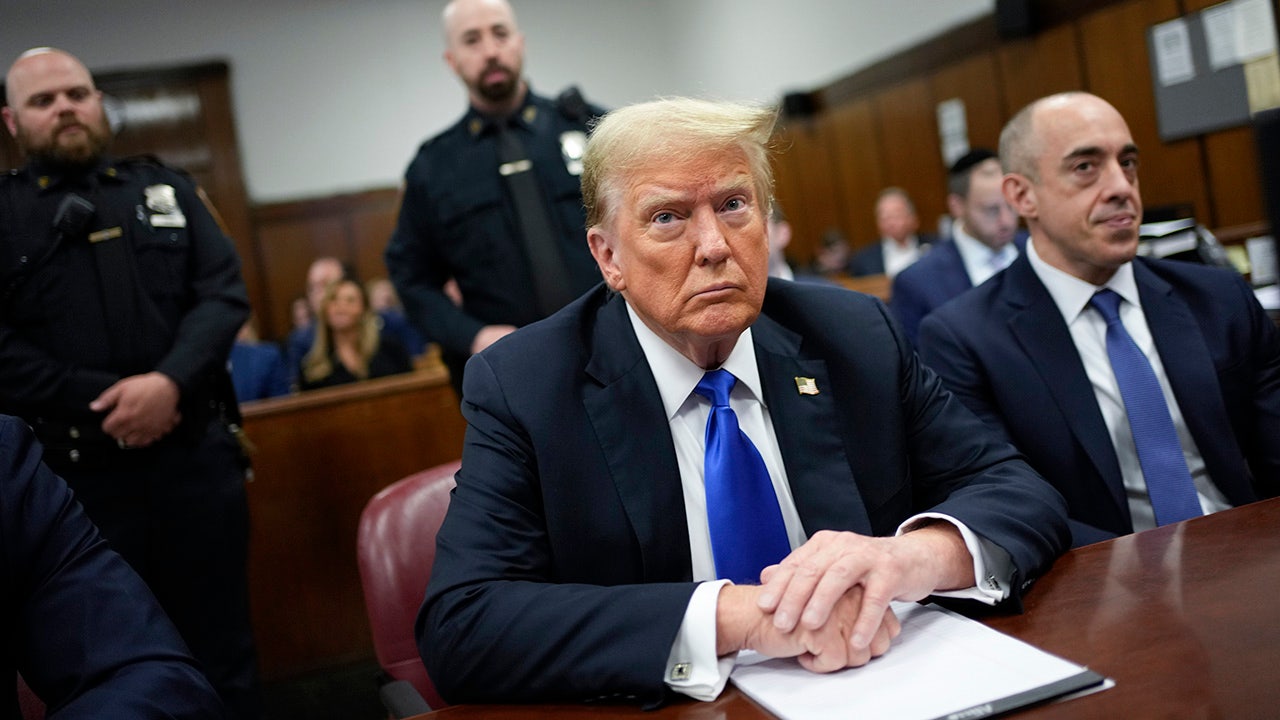
The unprecedented criminal conviction of former President Trump has opened a dark chapter in the history of America’s criminal justice system, according to several legal experts.
A New York jury on Thursday pronounced Trump guilty of 34 felony counts of falsifying business records in what prosecutors called a scheme to illegally influence the 2016 election. Trump is now the first former president to ever be convicted of a crime. He is scheduled to be sentenced on July 11 and may be sent to prison.
Harvard Law professor emeritus Alan Dershowitz is among those who have called the facts of Manhattan District Attorney Alvin Bragg’s case against Trump an “absolute joke.” He warned on Friday that if Trump can’t get justice in New York through the appeal process, it’ll be open season for Republican prosecutors to target Democrats in deep-red districts.
“This is the beginning of a war of weaponization of the criminal justice system,” Dershowtz said on “Mornings with Maria” on FOX Business. “The legal system failed. Our system of checks and balances, which is the great contribution that the American Constitution made, failed yesterday.”
TRUMP NY SENTENCING TO BE 4 DAYS BEFORE REPUBLICAN CONVENTION
Former President Donald Trump appears in Manhattan Criminal Court, Thursday, May 30, 2024, in New York. The jury found Trump guilty on 34 counts of falsifying business records. (AP Photo/Seth Wenig)
Trump’s critics would call that dire warning hyperbole, at best, or at worst, dangerous. They argue that Trump’s historic conviction, however irregular the charges, was delivered by a jury of his peers in a court of law where Trump was presumed innocent until proven guilty.
“This was a conviction by a jury of Americans who listened to the evidence and made their decision,” said Rachel Kleinfeld, a senior fellow in the Democracy, Conflict, and Governance Program at the Carnegie Endowment for International Peace, in comments to the New York Times. “When you undermine courts the way that elections have already been undermined, there is no peaceful way to settle differences.”
Trump and many of his supporters say otherwise: That this was the product of a blatantly political prosecution brought by Bragg, a Democrat who campaigned on a pledge to “get Trump,” presided over by Judge Juan Merchan — who previously donated $35 to an anti-Trump political committee — and located in a county where only 12% of residents eligible to be jurors voted for Trump in 2020.
“The whole thing was rigged from day one — from the venue to the judge,” Trump told Fox News Digital’s Brooke Singman in an exclusive interview after the verdict came down. He maintains his innocence and has accused President Biden and the Democratic Party of attempting to harm his presidential campaign through the legal system.
TRUMP GUILTY ON ALL COUNTS IN NEW YORK CRIMINAL TRIAL
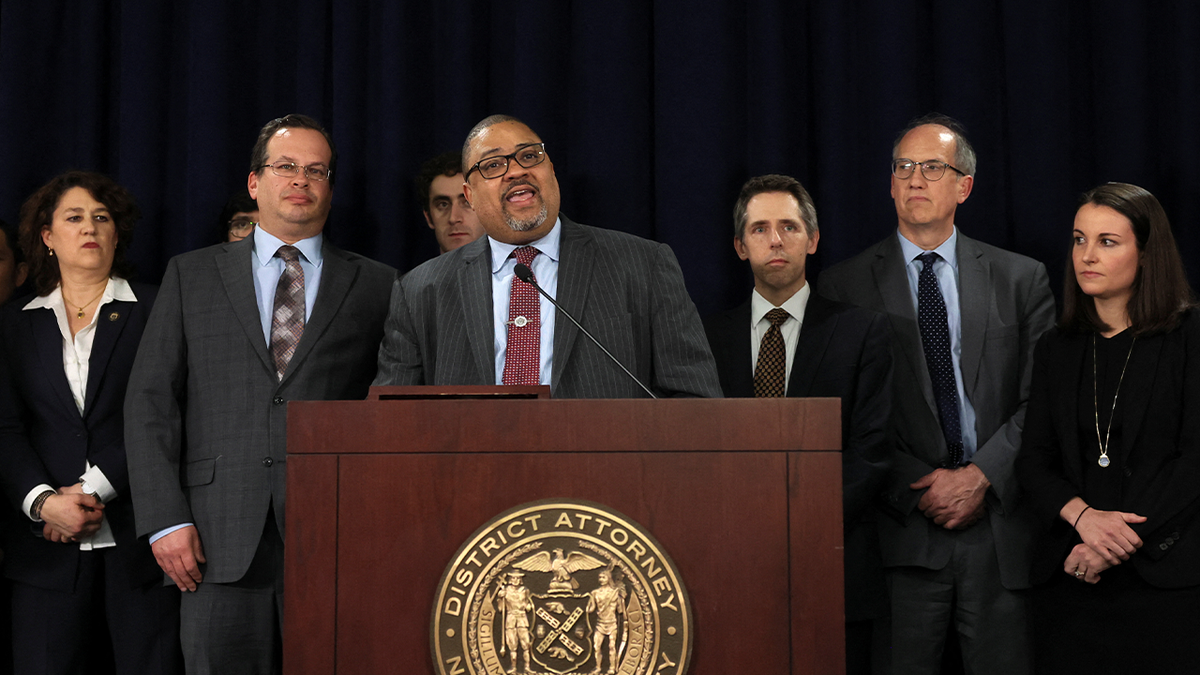
Manhattan District Attorney Alvin Bragg speaks after the guilty verdict in former President Donald Trump’s criminal trial over charges that he falsified business records to conceal money paid to silence porn star Stormy Daniels in 2016, at a press conference in New York, on May 30, 2024. (REUTERS/Brendan McDermid)
“We couldn’t get a fair trial,” he said. “It’s a sad day for New York and a sad day for the country.”
Bragg has denied any political motives in his successful prosecution of Trump and said his office “did our job,” which was “to follow the facts and the law without fear or favor.”
“The only voice that matters is the voice of the jury. And the jury has spoken,” Bragg said Thursday evening.
But Staten Island criminal defense attorney Louis Gelmorino said Bragg and other Democratic officials who made campaign promises to prosecute Trump should never have been allowed to move their cases forward.
“Letitia James, Fani Willis and Alvin Bragg all campaigned on the fact that they were going to get Trump. They all got elected and they all went right after Trump. And they all should’ve been recused, everyone in their offices, should’ve been recused because of the statements they made on the campaign trail,” said Gelormino, referencing New York Attorney General Letitia James and Fulton County District Attorney Fani Willis in Atlanta.
I WAS INSIDE THE COURT WHEN THE JUDGE CLOSED THE TRUMP TRIAL, WHAT I SAW SHOCKED ME: ALAN DERSHOWITZ
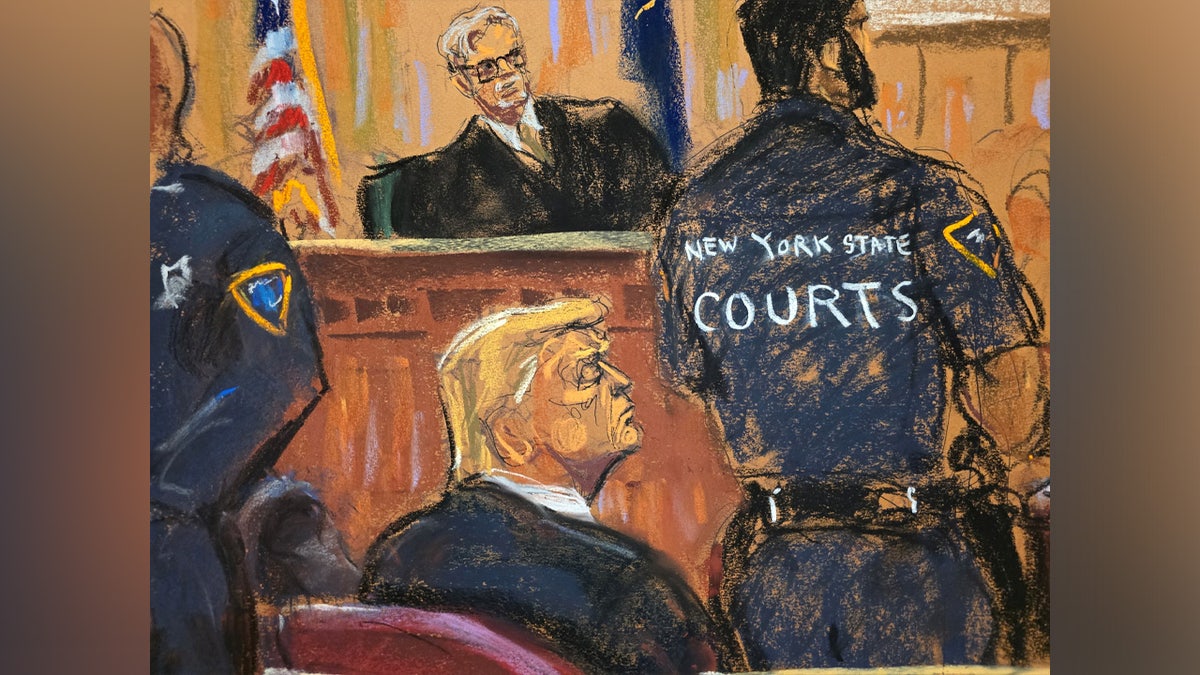
Republican presidential candidate and former President Donald Trump reacts as the verdict is read in his criminal trial over charges that he falsified business records to conceal money paid to silence porn star Stormy Daniels in 2016, at Manhattan state court in New York City, on May 30, 2024 in this courtroom sketch. (REUTERS/Jane Rosenberg)
James had called Trump a “con man” and “carnival barker” and promised to shine a “bright light into every dark corner of his real estate dealings” before she was elected in 2018. She led a successful prosecution of the Trump Organization for fraud by falsely inflating the value of its assets. Trump and his lawyers argued that he never told anyone to inflate the value of his assets and that, if there were discrepancies, no one was harmed.
Willis brought charges against Trump and 14 co-defendants in an alleged conspiracy to overturn the 2020 election in Georgia. After winning the Democratic primary for her office in March, she said “the train is coming” for Trump and his co-defendants.
“It’s quite obvious they are using the law to prevent Trump from running for office,” said Gelormino. He criticized Bragg’s prosecutorial decisions in New York, noting the district attorney has taken a soft approach towards violent crime while ferociously pursuing Trump.
“In Manhattan, you can deal a house full of drugs, and they’ll try, at best, not to prosecute or put you in a program. You can get arrested for all kinds of crimes in Manhattan, and they’ll try to reduce the sentence. But Bragg is really cracking down on white collar crime, and we see it every day while street crime, violent crime and drugs are let go. And he’s doing it because that’s not his constituency,” he said.
BIDEN URGES RESPECT FOR LEGAL SYSTEM AFTER TRUMP CONVICTION WHILE PUBLICLY FLOUTING SCOTUS RULINGS
David Gelman, a New Jersey-based a criminal defense attorney and a former deputy district attorney, said anyone who looks at how the Trump case was handled in New York and doesn’t think it was “weaponized” against Trump is “lying to themselves.”
“This is the first time in New York an individual has ever been tried for this type of crime. Is it a coincidence that it happened to President Trump smack-dab in the middle of a presidential campaign where he is the front-runner?” he asked. “I think not.”
He noted that the Federal Elections Commission, Department of Justice, Southern District of New York and Bragg’s predecessor each declined to prosecute Trump previously because they thought there was not enough evidence of a crime.
“The problem now is that this could be common where we prosecute our opponents to stop them from being elected,” he warned. “This makes us no better than countries like Russia or China.”
The Associated Press contributed to this report.
Politics
Most California Republicans in competitive congressional races are silent on Trump's conviction

Most of the Republican candidates for Congress in California’s most competitive districts reacted to the news of former President Trump’s historic criminal conviction with radio silence.
A New York jury deliberated for 9½ hours over two days before convicting Trump of 34 counts of falsifying business records in a scheme to illegally influence the 2016 election through hush money payments to a porn actor who said the two had sex.
After the verdict, California’s Republican leaders quickly cast doubt on the verdict’s legitimacy and argued it would boost Trump’s chances of reelection in November.
Former House Speaker Kevin McCarthy of Bakersfield said that Trump’s “only ‘crime’ is running against Joe Biden in 2024.”
Jessica Millan Patterson, the chair of the California Republican Party, said the prosecution was “a politically motivated case brought by a far-left district attorney” and that the guilty verdict “never should have happened.”
San Diego-area Rep. Darrell Issa (R-Bonsall) called the verdict and the trial “a disgrace.”
Democrats, by contrast, praised the verdict as proof of the American legal system functioning as it should. Rep. Adam B. Schiff (D-Burbank), who is running for Senate, said that “the rule of law prevailed” despite Trump’s efforts to “distract, delay and deny.”
In California’s most hotly contested congressional races, though, few wanted to publicly tangle with the question of Trump’s conviction.
Representatives for Reps. Young Kim (R-Anaheim Hills), Michelle Steel (R-Seal Beach), Mike Garcia (R-Santa Clarita), David Valadao (R-Hanford) and John Duarte (R-Modesto) did not return requests for comment. Nor did representatives for Matt Gunderson, who is challenging Rep. Mike Levin (D-San Juan Capistrano) in coastal Orange and San Diego counties, or Stockton Mayor Kevin Lincoln, who is running against Rep. Josh Harder (D-Tracy) in the Central Valley.
A representative for Republican Steve Garvey, who is running for Senate against Schiff, said he had no comment on the verdict.
One exception was Scott Baugh, who is running to flip the coastal Orange County seat held by Rep. Katie Porter (D-Irvine). Baugh, the former chair of the Orange County GOP, characterized Trump’s trial as a political prosecution and said the verdict “should surprise no one.”
“A politically motivated prosecutor and a hostile judge set the trial up for so many prejudicial errors,” Baugh said in a prepared statement. “President Trump will have his opportunity to appeal and I am confident that a fair hearing will expose and resolve these issues.”
And longtime Riverside Rep. Ken Calvert (R-Corona), who is fighting to retain his once-safe seat in a now-competitive swing district, said in a statement on Thursday evening that Trump’s prosecution was political — but his comment was more muted than the loudest GOP voices.
Calvert said that Americans who believe that “justice should be blind to politics” should be “concerned” by the trial’s outcome. He continued: “It’s alarming that our criminal justice system continues to be taken advantage of by partisan prosecutors who want to use the power of their office to influence our democratic elections.”
Whether to lock arms with Trump has been a fraught question for Republicans in California for nearly a decade, but especially this year. Republicans hold such a razor-thin majority in the House of Representatives that a handful of hyper-competitive races in the Golden State could determine which party controls the chamber. The nonpartisan Cook Political Report has rated 10 California races as competitive.
Remaining silent on the verdict makes sense for Republicans in those competitive battleground districts, said Dan Schnur, a politics professor at USC, UC Berkeley and Pepperdine.
“You’ll notice that the loudest voices supporting Trump on this tend to be Republicans in very safe seats,” Schnur said. “Candidates who need to reach swing voters don’t have that luxury.”
One challenge for candidates, said UC San Diego political science professor Thad Kousser, is that partisan allegiances determine how voters viewed the trial.
Polling has found that Democrats overwhelmingly saw the trial as fair, while only a tiny percentage of Republicans agreed. Independents were evenly split. A Trump-like message about a rigged, unfair trial that might resonate with a candidate’s Republican base could also turn off independents, Kousser said.
“Anyone trying to win a November race in a competitive district needs to worry about both mobilizing their base through more Trump-like rhetoric, but also the cost of alienating the middle,” he said.
Rob Stutzman, a GOP strategist who isn’t involved in any congressional races, said that while the verdict can be used as a tool by both parties to turn out voters in November, it’s a “touchy subject.”
“You may have independents in congressional seats who are indifferent to the verdict, but don’t necessarily want to see Republican incumbents defending Trump or decrying the verdict,” Stutzman said.
But Shawn Steel, who represents California on the Republican National Committee and is married to Steel, of Orange County, said the verdict will have “absolutely no impact” on California’s House races.
“The White House got the verdict they planned years ago,” Steel said. “The Manhattan jurors who convicted Trump did it out of malice and hate. Today’s verdict, along with the not-guilty verdict of the O.J. Simpson criminal trial, proved the steep decline of trust in the American criminal justice.”
Harmeet Dhillon, a San Francisco attorney who also represents California on the Republican National Committee and whose law firm represents the Trump campaign, said Californians are more concerned with quality-of-life issues, such as homelessness, crime and illegal immigration than they are with the trial.
“People are fed up,” she said. “People are much more motivated in this election to vote because things are getting bad here in California.”
While California Republican House candidates were largely quiet, some of their allies in other states, such as Arizona Senate candidate Kari Lake and vice presidential hopeful Sen. Tim Scott of South Carolina, were not.
“This was a rigged, disgraceful trial,” Trump told reporters after leaving the courtroom. “The real verdict is going to be Nov. 5 by the people.”
The Biden campaign said Thursday’s verdict showed that the law applied to everyone, but warned that the only way to keep Trump out of the White House is voting in November.
“Convicted felon or not, Trump will be the Republican nominee for president,” campaign spokesman Michael Tyler said. “The threat Trump poses to our democracy has never been greater. He is running an increasingly unhinged campaign of revenge and retribution, pledging to be a dictator ‘on Day One’ and calling for our Constitution to be ‘terminated’ so he can regain and keep power.”
In the wake of Trump’s conviction, Democrats seized upon 23 vulnerable House Republicans who had endorsed the former president, including Duarte, Garcia, Calvert and Steel.
“House Republicans have continued to put Donald Trump first and the American people last,” said Courtney Rice, a spokesperson for the Democratic Congressional Campaign Committee. “Their districts deserve better than their cult-like adherence to a wannabe dictator. Each and every one of them should rescind their endorsement, but won’t.”
Trump’s trial, which began in April in New York City, was one of four felony cases that Trump was facing, though it was thought to be the only one likely to see a trial before the November election.
The verdict hinged on whether Trump falsified business records to hide a $130,000 hush money payment that Michael Cohen — Trump’s lawyer and, later, a witness for the prosecution — made to adult film actor Stormy Daniels, who alleged she’d had a sexual encounter with Trump a decade prior.
Manhattan Dist. Atty. Alvin Bragg had to convince the jury that Trump not only commanded Cohen to make the payments, but that he did so in order to influence the outcome of the 2016 election, rather than to shield his family from the story. Trump pleaded not guilty and denied the sexual encounter with Daniels; Cohen testified that he had been deeply involved in the scheme.
Politics
Blue city rethinking 'sanctuary' status amid migrant flood
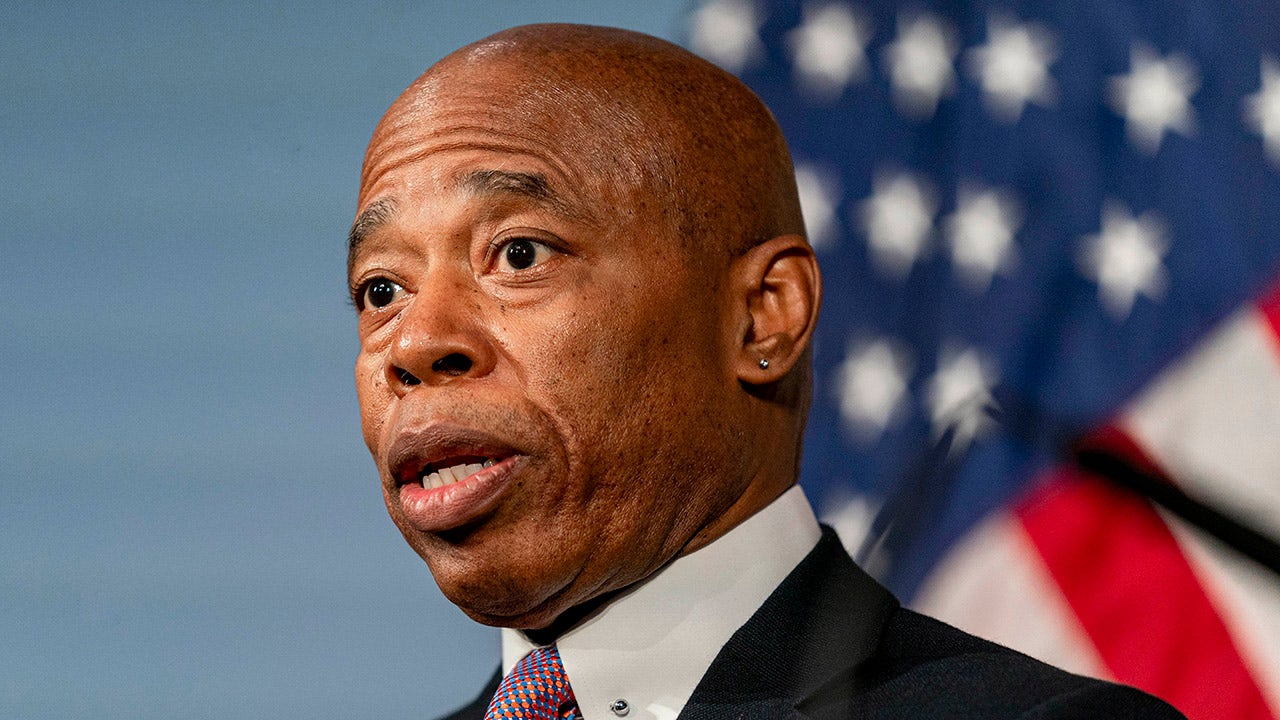
A duo of New York City Council members is reaching across the aisle to introduce a bill to end the sanctuary policies enacted under former Mayor Bill de Blasio.
Council members Robert Holden, a Democrat, and Joe Borelli, a Republican, plan to introduce legislation Thursday that would roll back the de Blasio-era policies and make it easier for the city’s law enforcement to cooperate with federal immigration authorities, according to a report from the New York Post.
“Sanctuary city laws put all New Yorkers, both immigrants and longtime residents, in danger by preventing the NYPD and DOC from working with ICE,” Holden told the New York Post. “We do not need to import criminals, and only 23 years since 9/11, we have forgotten the deadly consequences of poor interagency communication. We must repeal these laws immediately.”
NYC MAYOR RIPPED BY IMMIGRATION ACTIVISTS OVER ‘RACIST’ CLAIM THAT MIGRANTS MAKE ‘EXCELLENT SWIMMERS’
New York City Mayor Eric Adams (AP Photo/Peter K. Afriyie, File)
The bill, which is likely to face significant pushback from the city’s Democratic-majority council, would roll back restrictions that prohibit the New York City Police Department (NYPD) and Correction and Probation departments from cooperating with U.S. Immigration and Customs Enforcement (ICE).
The bill would also reverse a rule that prohibits city agencies from partnering with ICE on matters of federal immigration law, the New York Post report said.
The bipartisan effort comes after several high-profile migrant crimes, including the murder of Georgia nursing student Laken Riley.
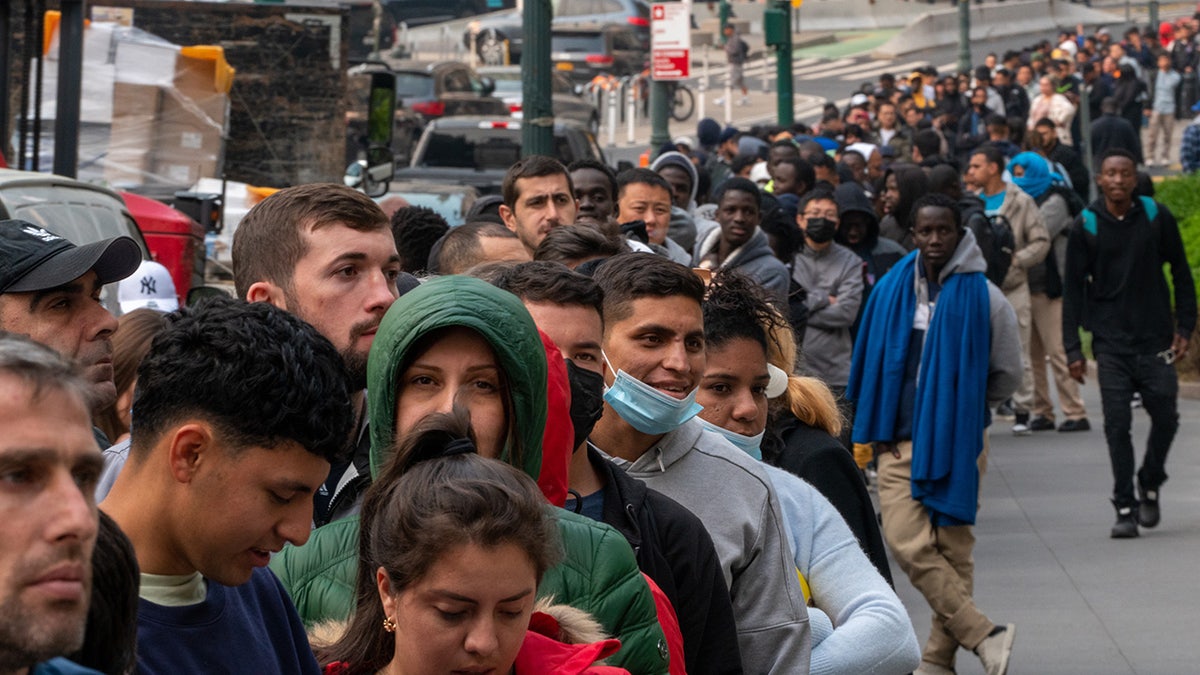
Hundreds of asylum seekers line up outside the Jacob K. Javits Federal Building on June 6, 2023, in New York City. (David Dee Delgado/Getty Images)
HOUSE REPUBLICANS GRILL NYC MAYOR ERIC ADAMS ON GIVING MIGRANTS PREPAID DEBIT CARDS
“Like most things in New York, sanctuary city policy is a social experiment gone off the rails,” Borelli told the New York Post. “All the problems with these local laws came out during the public-hearing process, but the Council just stepped harder on the gas pedal.”
New York City Mayor Eric Adams, who took over for de Blasio, has in the past indicated an openness to loosening the city’s sanctuary policies, with the New York Post noting the mayor called for migrants that are “suspected” of “serious” crimes to be turned over to ICE.
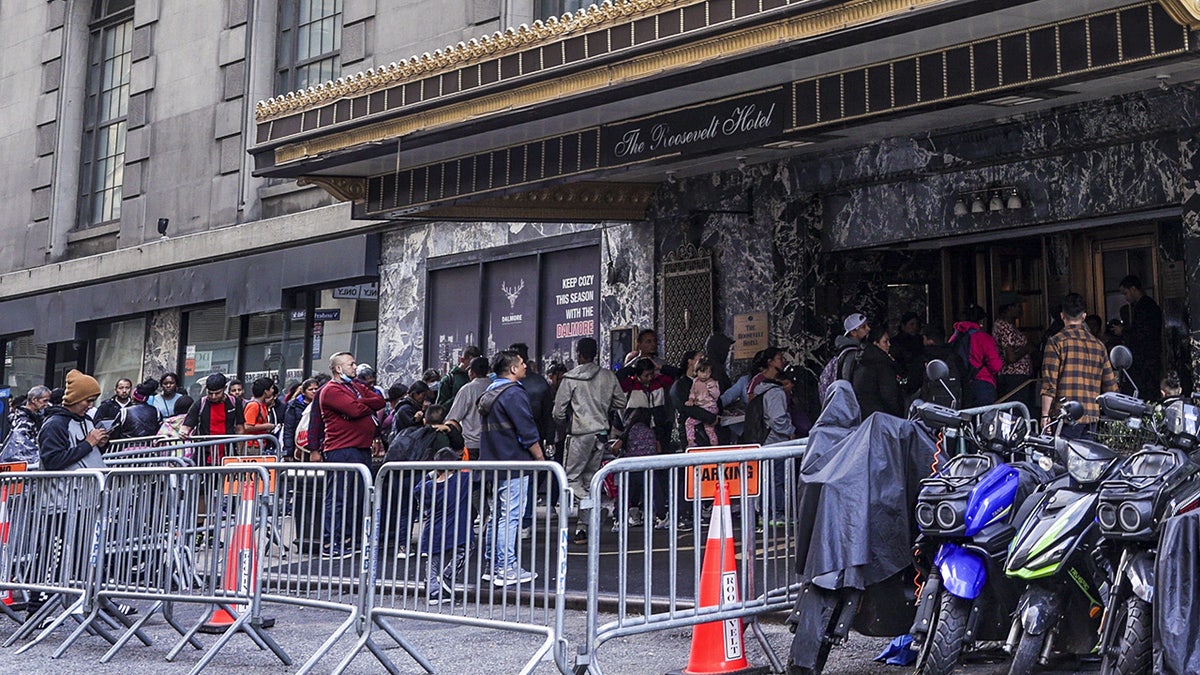
Asylum seekers line up in front of the historic Roosevelt Hotel, converted into a city-run shelter for newly arrived migrant families in New York City. (Selcuk Acar/Anadolu Agency via Getty Images)
Adams has yet to indicate whether he would support the new legislation. His office did not immediately respond to a Fox News Digital request for comment.
-

 News1 week ago
News1 week agoRead the I.C.J. Ruling on Israel’s Rafah Offensive
-

 World1 week ago
World1 week agoHoping to pave pathway to peace, Norway to recognise Palestinian statehood
-

 News1 week ago
News1 week agoLegendary U.S. World War II submarine located 3,000 feet underwater off the Philippines
-

 World1 week ago
World1 week agoFamilies of Uvalde school shooting victims sue Microsoft, Meta and gunmaker
-
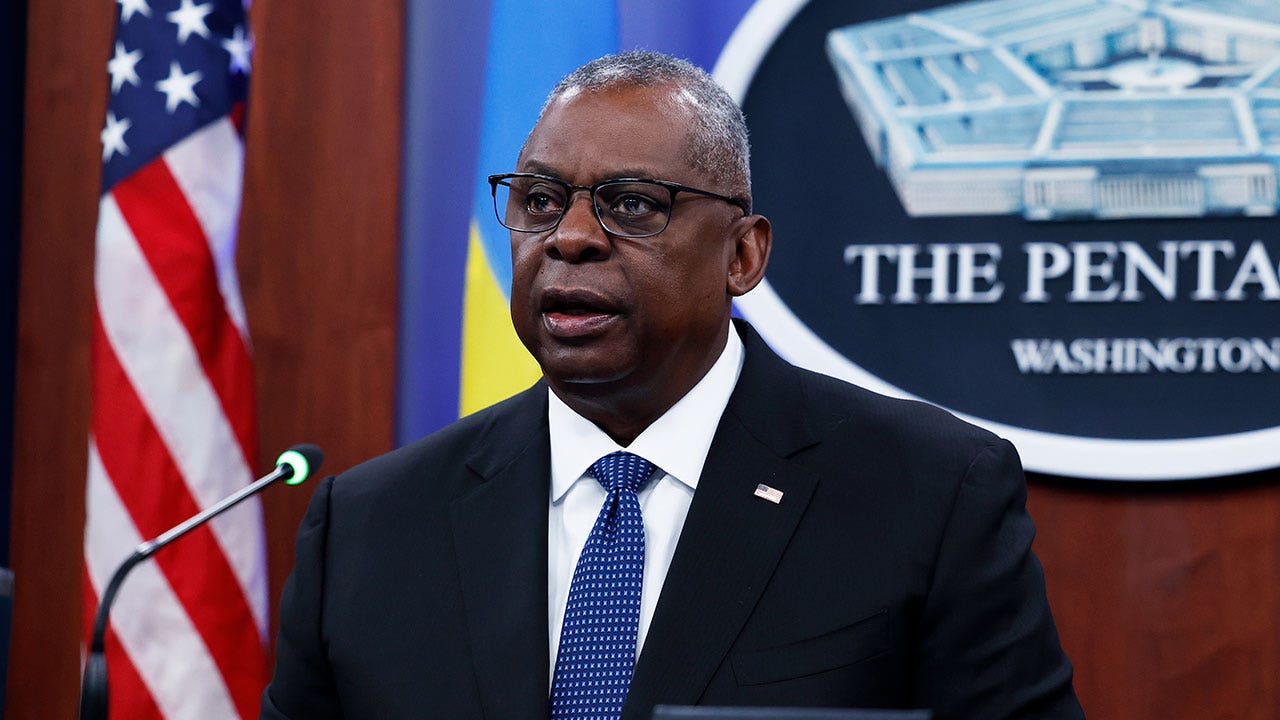
 Politics1 week ago
Politics1 week agoDefense Secretary Lloyd Austin to undergo nonsurgical procedure, Deputy Kathleen Hicks will assume control
-

 Politics1 week ago
Politics1 week agoHunter Biden attends pre-trial hearing in Delaware court on federal gun charges
-

 News1 week ago
News1 week agoHere are three possible outcomes in the Trump hush money trial : Consider This from NPR
-

 News1 week ago
News1 week agoPrimate remains on the loose in South Carolina | CNN




